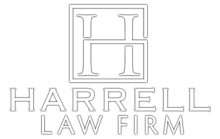Medical Malpractice Lawyers in New Jersey
Medical malpractice occurs when a doctor, a nurse, or another healthcare provider, through a negligent act or omission, causes harm to a patient. This could involve dosage errors in medication, surgical and anesthesia errors, or misreading laboratory results, among many others. Patients often pay a high price when this happens. At Harrell Law Firm, we work hard to ensure full and fair compensation to our clients for their losses caused by medical malpractice. If this has happened to you, please contact us for a free case evaluation.
We are passionate about providing exceptional legal advocacy to clients from all walks of life. However, we know that insurance companies work hard to protect their profit margins, which can often mean they will devalue, delay, or outright deny legitimate injury claims. Our attorneys have years of experience handling insurance companies and the most complex personal injury matters.

What is Medical Malpractice?
A medical malpractice lawsuit is a legal action brought by a patient injured due to a healthcare provider’s negligence or failure to meet the accepted standard of care. Despite their extensive training, medical professionals make mistakes that can cause life-changing or fatal injuries. These lawsuits attempt to hold healthcare professionals accountable for these preventable mistakes and achieve justice through financial compensation for the patient.
How to Prove Medical Malpractice in New Jersey
To prevail in a medical malpractice claim in New Jersey, there are four elements that your New Jersey lawyer must prove:
- The provider owed you a medical standard of care. Briefly, this refers to what a reasonably skilled provider with the same level of education in the same geographic area–would have provided for you under the same set of circumstances.
- The provider breached that standard of care. The breach can be one of action–such as a misdiagnosis, surgical errors, or prescribing the wrong medication to you, or inaction–such as a nurse failing to monitor you during a hospital stay.
- Causation means you were injured because of the breach of duty owed to you.
- Damages were sustained. Your lawyer has the burden of providing documentation that shows medical bills, lost earnings, and other losses due to the injuries.
What Constitutes Medical Malpractice?
The following is a non-exhaustive list of some common types of medical malpractice in New Jersey:
- Errors in diagnosis. This would include failure to diagnose, delayed diagnoses, or misdiagnosis. These errors can be catastrophic if a potentially fatal disease is not diagnosed and treated in a timely manner.
- Errors in the administration of anesthesia. The practice of anesthesia has become safer. However, dosage errors and patient monitoring failures, among others, can have catastrophic results.
- Surgical mistakes. These can involve operating on the wrong body part, permanently damaging a nerve, or mistakenly leaving medical equipment inside the body.
- Nursing errors. An example of a nursing error is failing to monitor the patient in the emergency room.
- Testing errors. This could involve misreading test results or failing to order the proper tests.
- Birth injuries. These injuries can permanently and severely limit your child’s quality of life or even be fatal.
- Malfunctioning of medical equipment. An example is an MRI machine that was not properly maintained or sanitized.
- Failure to refer you to a specialist when appropriate. Doctors should refer or consult a specialist for proper care if necessary.
- Medication errors. Examples include prescribing the wrong medication or not prescribing it in a timely manner.
How Much is the Average Medical Malpractice Settlement?
Medical malpractice settlements vary greatly. While some victims will receive millions of dollars in financial compensation, that is not the case for everyone. Some factors that determine how much a victim receives include the injury’s permanence and severity, its impact on the patient’s quality of life, and to what degree the healthcare provider was negligent. In addition, there are several different types of damages that medical malpractice victims may pursue, including:
- Medical bills. Including transportation by ambulance or helicopter, visits to the emergency room, hospital stays, doctor visits, surgeries, and procedures. In addition, damages may also cover prescription medications, physical therapy, psychological therapy, assistive devices, testing and imaging, prosthetics, in-home care, and modifications to your home in New Jersey.
- Lost wages and loss of earning capacity. Lost wages cover the unpaid time you are forced to miss from work due to your injury. Loss of earning capacity comes into play if you can return to the workforce in a limited capacity. For example, before this injury, you may have been earning $200,000 per year as the CEO of a company. However, due to your physical, mental, or psychological disabilities, you may be incapable of performing your former job. Instead, you are now relegated to a clerical position where you earn $35,000 per year. The loss of earning capacity category of damages would cover the gap between $200,000 and $35,000.
- Pain and suffering. You may experience significant physical pain for the rest of your life, and the accompanying emotional distress may be just as overwhelming.
- Loss of companionship and consortium. Your life may never be the same, as your injuries may cause physical, mental, and psychological disabilities that severely restrict your quality of life or even significantly change your personality. As a result, it is common for your relationships with your loved ones to suffer.
- Punitive damages. These damages punish the healthcare provider for particularly egregious actions or omissions. They are also designed to deter other medical professionals from making similar errors in the future.

Who Can Be Sued for Medical Malpractice in New Jersey?
Many people focus on the doctor’s mistake when considering medical malpractice. However, any person or entity who provides healthcare can be sued for medical malpractice if they breach their duty of care, including the following:
- Doctors
- Nurses
- Technicians
- Healthcare facilities
- Hospital groups
- Optometrists
- Physical therapists
How Long Do You Have to Sue for Medical Malpractice in New Jersey?
The statute of limitations for medical malpractice cases in New Jersey is two years, but there are exceptions that an experienced attorney can explain to you. However, you generally have two years from the date of your injury–or the date you discovered the injury–in which to file a claim. For example, in the case of a birth injury, you have until your child’s 13th birthday.
Contact Us at Harrell Law Firm for a Free Consultation
At Harrell Law Firm, we send a message to the insurance company that we will not settle our client’s claim for less than what it’s worth. Our focus is helping our clients maximize their financial compensation. If you have been injured due to medical malpractice, contact us to schedule a no-cost, no-obligation consultation with an experienced New Jersey personal injury lawyer. We serve all of New Jersey, including Wall Township, Howell Township, and Monmouth County. Since we work on a contingency fee basis, there are no upfront legal fees.

